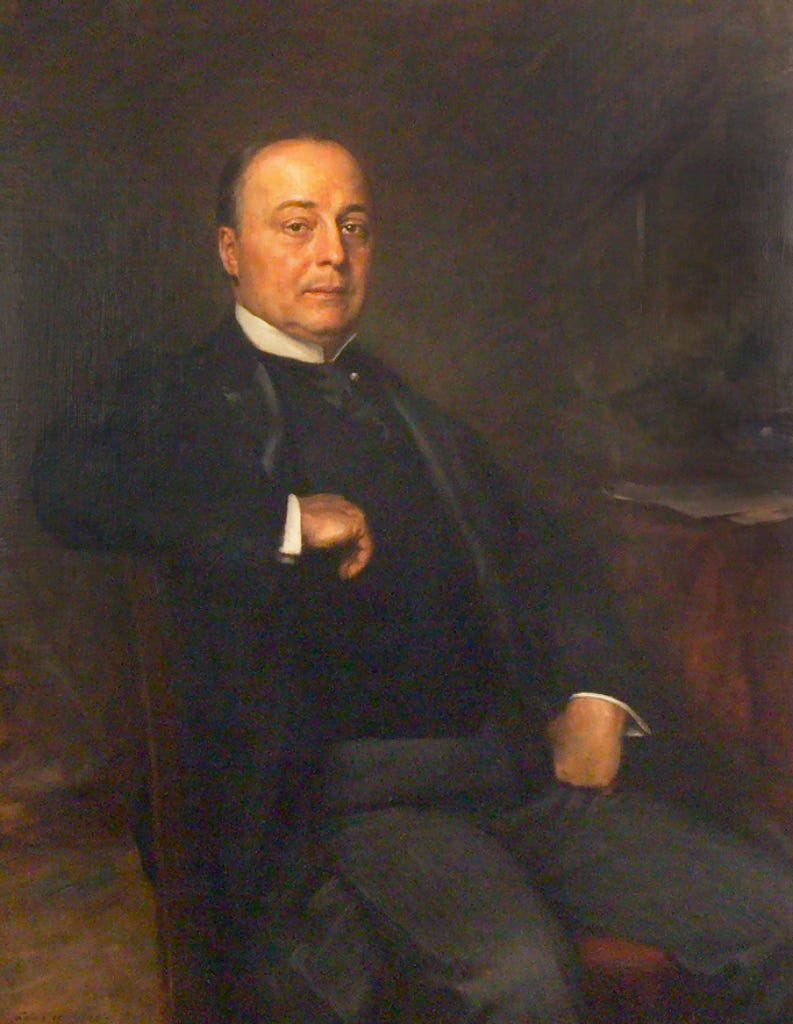Critics of the Biden administration have accused the president of applying a double standard to territorial occupations. Biden has denounced the Russian occupation of parts of Ukraine as illegitimate, and he has enlisted many billions of American dollars in the service of ending it. At the same time, Biden has strongly supported Israel, which unapologetically occupies the West Bank and the Gaza Strip.
Certain defenders of Israel have given the double-standard accusation a historical twist. Speaking to American critics of Israel, they point out that Israel's seizure of Palestinian territory a few decades ago pales by comparison with America’s seizure of Indian territory over nearly four centuries.
People like to think of themselves as behaving well. They like to think their actions are justified by moral codes. But some human activities appear to transcend morality. The seizure of land is one such activity. Whatever moral gloss people put on it, historically it operates according to a single ruthless principle that might be called the first law of human geography.
This law is simple and straightforward: Take what you can, and hold it till you can't.
It should be noted that this law is descriptive rather than prescriptive. It deals with what is, or has been, and not what ought to be. It is more like the law of gravity than a law of a parliament or congress.
The law appears to have existed since before humans became humans. Chimpanzees fight over territory. They give no evidence of moral qualms in pushing aside other chimpanzees. They see a parcel of forest or savannah that has lots of food, and they take it from its current occupants, if they can. They hold it until another band is able to oust them.
Human hunters and gatherers adopted a similar strategy. As recently as the 18th and 19th centuries, the Lakota people of America’s northern plains forcibly took the Black Hills from the Crows, and the Comanches on the southern plains drove out the Apaches.
The emergence of agriculture sharpened the struggle for territory. Crops have roots, unlike buffalo, and displaced farming peoples face imminent starvation. For this reason they resist displacement more strenuously than hunters do. Yet the displacers were often displaced persons themselves, and were as desperate to acquire land as the defenders were to retain it. The Vandals who invaded the Roman empire in the 5th century were fleeing the Huns.
Religion has often provided a cloak for conquest. The descendants of Abraham claimed a covenant with God as the basis for settling Canaan. The armies that swept out of the Arabian peninsula built an empire in the service of Allah. Spanish conquistadores carried the cross as they laid claim to most of the Americas.
A secular version of this mission-driven conquest rationalized colonial expansion in the 19th century. The British imposed themselves on Africa in the name of ending slavery. The French asserted a civilizing mission in Africa and southeast Asia. Americans claimed a “manifest destiny” in taking Texas and California from Mexico and much of the rest of the continent from the Indians.
However it was explained and defended, the principle was the same. The more powerful thrust aside the less powerful. Instances of self-denial—of a people eyeing a tempting territory and saying: no, we won't take it, it wouldn't be right—are essentially nonexistent. The United States took only half of Mexico in the war of the 1840s not because American leaders lost their self-righteous nerve, but because the part they didn't take included too many Mexicans for their taste.
Territorial conquest is rarely forever. You take what you can but you hold it only until you can't. Mexico had seized Texas and California from the Spanish, who had seized it from the indigenous peoples; Mexico held those territories until Americans wrested them away. Britain held India until the costs of continued possession outweighed the benefits. France lost Indochina and Algeria to determined nationalists.
The war in Ukraine and the war between Israel and Hamas show that the ancient law still applies. The Soviet Union held Ukraine until the Soviet Union collapsed in the early 1990s, at which point Ukraine became independent. Russia's Vladimir Putin wants some or all of Ukraine back. The war will determine whether he gets what he wants. Each side has its story as to why it deserves to control the contested territory. But both sides understand that the contest will be determined by strength on the ground.
Israel was created in 1948 out of territory occupied by Palestinians and some Jews. The Zionist case persuaded the United Nations, but not the Palestinians or their Arab neighbors. The Israelis had to fight for the territory they made their own. They’re still having to fight for it, because Hamas and some other Palestinians still aren’t persuaded Israel has a right to be there.
After Theodore Roosevelt fomented a revolution in the part of Colombia that became Panama, in order to acquire territory to build the Panama Canal, the president asked his attorney general, Philander Knox, if he should seek congressional authorization for his action. “Oh, Mr. President,” Knox replied, "Do not let so great an achievement suffer from any taint of legality."
As America’s chief lawyer, Knox understood the Constitution and the laws written under it. His comment to Roosevelt suggests he also understood the deeper law that long predated America's federal charter.




Philander Knox was a realist.
Thank you for that story and quote.
We're still chimpanzees just following the Law of the Jungle! Should we stop trying to improve our human nature?